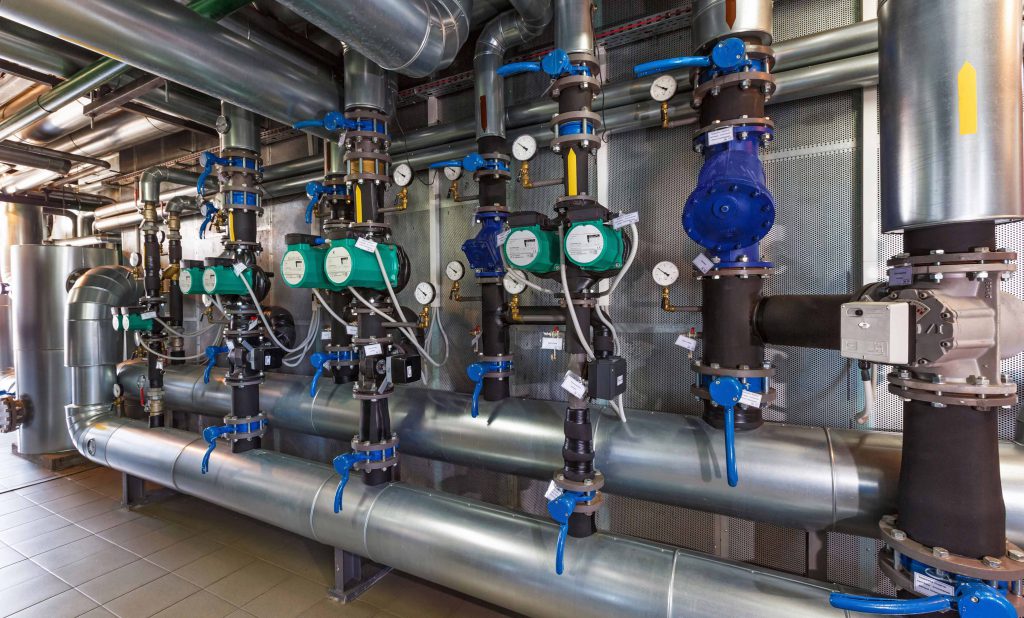Why is Gas Detection Necessary for Mechanical Systems
Various buildings, campuses, and plants have mechanical systems for smooth running. The mechanical system of any building contains chiller rooms and boiler rooms. However, these rooms have numerous appliances which emit toxic chemicals and gases. There is always a risk of explosion of fire if these leaking gases are not monitored frequently. Since the human nose can’t detect most toxic gases, installing gas detection in mechanical systems is necessary. This article will elaborate on the importance of gas detectors in mechanical systems. Keep reading to know more!

Gas Detection at Mechanical Systems:
The boiler and chiller rooms must be monitored frequently to keep the hazards at a distance. Since the appliances leak toxic gases, it is unsafe to turn a close eye on these rooms. Moreover, the regulatory authorities also want your compliance with the set safety standards, making the detector installation mandatory. Following is a detailed illustration of gas detectors at mechanical systems.
1. Mechanical Rooms:
Mechanical rooms in any building contain various devices like generators and hot water tanks. Since these appliances won’t work with combustible gases, flammable gases in such confined spaces could create problems. Hazardous substances are often generated as byproducts in these rooms, posing a more serious threat to the environment and workers.
i) Gases found:
Mechanical rooms are never free of flammable and toxic gases, and most of these gases are odorless, and the human nose can’t detect them. Some of the common hazardous gases found in mechanical rooms are listed here:
- Carbon Monoxide (CO)
- Nitrogen Dioxide (NO2)
- Refrigerants
- Combustible gases
These gases often go unnoticed by human senses, resulting in serious damage. The best way to protect against their hazards is to install a gas detection system in the mechanical rooms, and doing so will protect your workers and environment from hazards.
ii) Risks and hazards:
The gases mentioned above might not be that dangerous, but the problem lies where they exist. Since a mechanical room in a confined space, a small quantity of CO or NO2 gas could be
harmful. A few health hazards caused by these gases are:
- Irritating eyes
- Headache
- Nausea
- Difficulty in breathing
2. Chiller Rooms:
Chiller rooms in any building are always busy keeping the atmosphere clean and cool. The role of these rooms is to ensure comfort in a building, but the room itself often poses problems. Chiller rooms can’t work without chemicals and gases since they are used to remove heat and create cooler air. The devices used in these rooms are:
- Turbo air conditioners
- Chillers
- Condensers
- Coolers
- Refrigerating devices
i) Gases found in chiller rooms:
Since chiller rooms have various refrigerating devices, they contain the following chemicals or gases:
- Chlorofluorocarbons (CFCs)
- Hydrofluorocarbon (HFC)
- Hydrochlorofluorocarbons (HCFCs)
These chemicals are used to generate cooler air and remove the heat from a building or a campus. Despite being used for good reason, these gases are not human-friendly, and a little prick could cause considerable damage.
ii) Risks and hazards:
As discussed, CFCs and HFC are not often combustible, but they can be serious damages if they exceed the recommended levels. They can cause fire and explosion, damaging the environment. Moreover, humans can encounter issues like asthma, irritating eyes, and headache due to prolonged exposure.
The best way to ensure the safety of your workers and workspace is to install proficient gas detectors across the entire plant. Humans detect not all gases as some need advanced technology and gadgets, and you need to pay serious attention to them.
3. Boiler rooms:
Workers infrequently visit boiler rooms, and hence the chances of toxic gas leakage going unnoticed increases. Methane (natural gas) is commonly found in these rooms, and an excessive concentration of this gas can cause problems. The minimum Methane concentration that could ignite an explosion is 4.4% by volume. Since this gas is lighter than air, it will rise and towards the ceiling and going unnoticed by human senses.
Natural gas is highly flammable, and it puts your boiler room at the risk of fire and explosion if not monitored frequently. Apart from ventilation and an adequate supply of air, the management should install a proficient detection system in the boiler room.
4. Carbon Monoxide Poisoning:
A considerable concern for boiler equipment in a mechanical system is CO poisoning. A continuous leak of CO will expose individuals to various health hazards like dizziness, chest pain, and nausea. If the concentration exceeds 50 ppm, the management should take serious preventive measures.
A building’s mechanical rooms can be made safe with the help of modern-day gas detecting devices. Since the boilers and chillers rooms are never free of toxic gases and chemicals, installing these devices could be helpful.
Make your industry safe with a gas detection system!
Toxic gases and chemicals lurk around in industrial atmospheres. Workers are always prone to these gases should they not be protected against. The best you can do is install gas detectors across the entire plant to ensure safety!
The post Why is Gas Detection Necessary for Mechanical Systems appeared first on Sunshine Slate.
source https://www.sunshineslate.com/business/environment/why-is-gas-detection-necessary-for-mechanical-systems/
Comments
Post a Comment